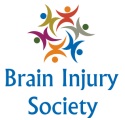Tag Archives: car accident
Car Accidents and Traumatic Brain Injury
With football-caused concussions and brain disease grabbing so much attention, it’s easy to forget that sports are a relatively uncommon source of traumatic brain injury, or TBI, among the general population. In fact, motor vehicle accidents and falls are responsible for most TBIs suffered by Americans. According to the Centers for Disease Control and Prevention, about 2 million Americans per year experience TBI, with 14.3% caused by traffic accidents and 40.5% caused by falls. That means some 286,000 TBIs result from car crashes annually. The actual number may be much higher, because brain injuries aren’t always immediately obvious after an accident. Indeed, TBI is commonly referred to as a “silent” epidemic …
Don’t Become a Statistic: Reduce Brain Injuries by Stopping Texting and Driving
Five seconds. That’s about how long a driver takes his or her eyes off the road when reading or responding to a text. It doesn’t seem like a very long period of time until you realize that, at 55 mph, 5 seconds is the equivalent of driving the length of a football field while blindfolded. Texting while driving is hands down the most dangerous form of distracted driving because it requires the use of manual, visual, and cognitive skills. The driver’s eyes, hands and focus are off the road, leaving him or her vulnerable, as well as anyone else who’s in the car or unlucky enough to be on the …
Texting While Driving Vs. Drunk Driving: Which Is More Dangerous?
For decades, drunk driving has been at the forefront of debate. Stricter laws have been passed across the nation leading to a decrease in drunk driving accidents. However, a new driving threat is quickly taking its place. That threat is texting while driving – and many say that it is actually more dangerous than drunk driving. Comparing The Two: Texting While Driving Is Like Drinking 4 Beers The impairments associated with drunk driving and texting while driving are similar, according to the National Highway & Transportation Administration (NHTSA) website, distraction.org. Both cause distraction and impaired driving that can result in following too closely, not being able to brake on time …
